The 2nd workshop about
High-Performance e-Science
In recent years, the convergence of high-performance computing and eScience has opened new scientific discovery and innovation avenues. Researchers across various domains leverage advanced computational techniques to analyze vast data, simulate complex systems, and accelerate scientific workflows.
The 2nd Workshop on High-Performance eScience (HiPES) aims to bring together experts from academia, industry, and government organizations to discuss the latest developments in this rapidly evolving field and explore emerging trends, challenges, and opportunities within the framework of tools and applications.
The workshop focuses on managing distributed workflows in eScience, encompassing a broad spectrum of topics essential for interoperability and efficiency. This includes exploring design patterns, languages, and orchestration tools tailored to the specific needs of eScience high-performance applications. Additionally, researchers delve into scheduling algorithms, fault tolerance mechanisms, performance monitoring, and benchmarking procedures to ensure the smooth functioning of distributed workflows across diverse scientific domains.
Emphasizing the concept of FAIRness (Findable, Accessible, Interoperable, and Reusable), the workshop encourages contributors to explore this crucial aspect of eScience. Methodologies and tools are discussed to ensure data and computational resources are discoverable, accessible, and usable across various platforms and research communities. Privacy and security considerations, particularly concerning sensitive scientific data, are integral components open for discussion during the workshop.
The workshop will feature invited talks, contributed presentations, and panel discussions.
Scope
The HiPES 2025 workshop will be held on August 25th with the EuroPar 2025 conference in Dresden, Germany. All papers accepted to HiPES 2025 will be published in a revised form in a special Euro-Par Workshop Volume in the Lecture Notes in Computer Science (LNCS) series after the Euro-Par conference.
The HiPES workshop provides a platform for researchers to present their latest work on high-performance eScience tools, algorithms, and applications. It fosters collaboration and knowledge exchange among participants from diverse backgrounds, including computer science, computational science, domain sciences, and engineering. The audience is encouraged to discuss practical challenges and best practices in developing and deploying high-performance
eScience solutions in real-world settings are identifying future research directions and potential areas for innovation in high-performance eScience.
For some time, eScience tools and applications have been first-class citizens in the parallel and distributed computing ecosystem, especially at extreme scales. With the advent of deep learning and foundational models, this trend has been fated to stand for a long time. Furthermore, when moving from the researcher’s desk to a production-grade pipeline, all parallel and distributed computing algorithms must integrate more or less directly with eScience tools and applications.
The convergence between the modular nature of modern applications and the eScience domain, coupled with diverse hardware configurations, necessitates adaptable workflow systems. These systems must support various execution environments, from traditional High-Performance Computing (HPC) infrastructures to cloud environments and emerging Edge computing platforms. Optimization policies balancing performance and energy efficiency are paramount, alongside the integration of various computational models, including classical and quantum computing paradigms. In line with the ethos of the Workflow Community Initiative, the HiPES workshop offers a collaborative platform for researchers to share expertise, exchange ideas, and gain insights from diverse perspectives within the context of eScience. The event facilitates direct engagement through open discussions, fostering the exchange of views and ideas among participants and encouraging collaborative endeavors to tackle the challenges and opportunities in distributed workflows within the eScience domain.
The HiPES workshop convenes researchers specializing in distributed workflows, a vital aspect of eScience. These workflows are a robust tool for developing and executing intricate applications across distributed architectures, driving forward eScience initiatives. The complexities inherent in modeling, orchestrating, and monitoring distributed workflows within the eScience landscape offer fertile ground for research and innovation.
Call For Papers
The 2nd Workshop on High-Performance eScience (HiPES) aims to bring together experts from academia, industry, and government organizations to discuss the latest developments in this rapidly evolving field and explore emerging trends, challenges, and opportunities within the framework of tools and applications.
The HiPES 2025 workshop will be held August 25th with the EuroPar 2025 conference in Dresden, Germany. All papers accepted to HiPES 2025 will be published in a revised form in a special Euro-Par Workshop Volume in the Lecture Notes in Computer Science (LNCS) series after the Euro-Par conference.
The workshop is designed for researchers, practitioners, and students interested in high-performance computing, science, and interdisciplinary research. Participants from academia, industry, government labs, and nonprofit organizations are encouraged to attend and contribute to the vibrant discussions and collaborations.
We invite submissions of original research contributions, case studies, and innovative applications in the following areas (but not limited to):
• High-performance computing (HPC) techniques and architectures for eScience
• Languages, paradigms, and tools for scientific workflows
• Scalable and efficient scientific workflows orchestration for eScience
• Optimization techniques for parallel and distributed computing
• Integration of machine learning and AI with eScience applications
• Big data analytics and visualization in scientific domains
• Cloud computing and edge computing for eScience
• Reproducibility and sustainability in computational research
• Performance evaluation and benchmarking of eScience tools and platforms
• Paradigms and techniques for FAIRness in eScience
• Ad-hoc file systems for I/O intensive eScience applications
• Prospective and retrospective provenance models for large-scale applications
• Security, privacy, and trust models and tools for eScience platforms
• Case studies and success stories of real-world eScience applications
We encourage submissions of full papers describing original research, work-in-progress, or experience reports related to the workshop topics.
Important dates:
Paper submission: May 5 May 25
Notification of acceptance: June 23
Camera-ready: July 7
Submission guidelines:
Authors are invited to submit papers electronically through EasyChair. The papers should be submitted in PDF format following the Springer LNCS format. Paper length must not exceed 12 pages (including references). All submitted manuscripts will be checked for originality by Springer iThenticate (papers that show insufficient originality might be rejected without a review).
Workshop proceedings:
Accepted papers presented at the workshop will be published in a revised form in a special Euro-Par Workshop Volume in the Lecture Notes in Computer Science (LNCS) series after the Euro-Par conference.
Schedule
The schedule will be available after papers acceptance.
| Time | Activity | Speakers | Title |
| 8:30-9:00 | Registration | ||
| 9:00-9:15 | Opening and welcoming | Raffaele Montella, Iacopo Colonnelli, and Paula Olaya | Welcome to Hi-PES 2025 |
| 9:15-10:00 | Keynote speech | Marco Lapegna | Deploying HPC scientific applications at the edge: some lessons from our experiences |
| 10:00-10:30 | Presentation 1 | Francesco De Micco, Francesca Formisano, Diana Di Luccio, Ciro Giuseppe De Vita, Gennaro Mellone, Dante Sánchez-Gallegos, Pasquale De Luca, Emanuel Di Nardo, Vincenzo Capozzi, and Angelo Ciaramella | A framework for flooding early warning leveraging AI, HPC, and computing continuum |
| 10:30-11:00 | Coffee Break | ||
| 11:00-11:30 | Presentation 2 | Marco Edoardo Santimaria, Adriano Marques Garcia, Giulio Malenza, Stefano Monaldi, Marco Aldinucci, and Robert Birke | Thread Monitoring Tool: transparent characterization of threading patterns with eBPF |
| 11:30-12:00 | Presentation 3 | Tommaso Foglio Bonda, Doriana Medic, Alberto Mulone, and Marco Aldinucci | Accelerating SWIRL Workflows: A High-Performance Rust Backend for Distributed Execution |
| 12:00-12:30 | Presentation 4 | Eugenio Cesario, Salvatore Giampà, and Domenico Talia | Building Parallel Machine Learning Workflows in PyCOMPSs: The Case Study of Tsunami Forecasting |
| 12:30-14:00 | Launch break | ||
| 14:00-14:30 | Presentation 5 | Maximo Rodriguez, Dante Sánchez-Gallegos, Marco Nuñez, Heriberto Aguirre-Meneses, Luis Villalvazo-Gutiérrez, Mario Ibrahin Gutiérrez Velasco, Jose Luis Gonzalez-Compean, and Jesus Carretero | A Computer-aided Framework for Detecting Osteosarcoma in Computed Tomography Scans |
| 14:30-15:30 | Panel | All the TP authors | Discussing the vision about the high-performance cloud computing in eScience application |
| 15:30-16:00 | Coffee Break | ||
| 16:00-17:15 | Hands-on tutorial | Gennaro Mellone, Federico Fabiano, Guido Davoli Andrea Alessandri, and Raffaele Montella | DAGonCAPIO and GLOBO-GLOWPP developing a computational workflow for orchestrating a global weather forecasting model |
| 17:15-17:30 | Closing remarks | Raffaele Montella |
Invited Speakers
Marco Lapegna, University of Naples “Federico II”, Deploying HPC scientific applications at the edge: some lessons from our experiences
Abstract. Edge Computing environments enable the development of pervasive applications distributed across extensive geographical areas, addressing challenges associated with centralized data processing, such as network congestion and the demand for large-scale computing infrastructures. On the other hand, the performance of edge nodes is not comparable to that of high-end servers, often making it challenging to run large-scale AI applications. This presentation will explore key insights gained from our experiences with two case studies involving the deployment of environmental monitoring applications on low-power, high-performance edge computing devices leveraging GPU-accelerated artificial intelligence techniques.
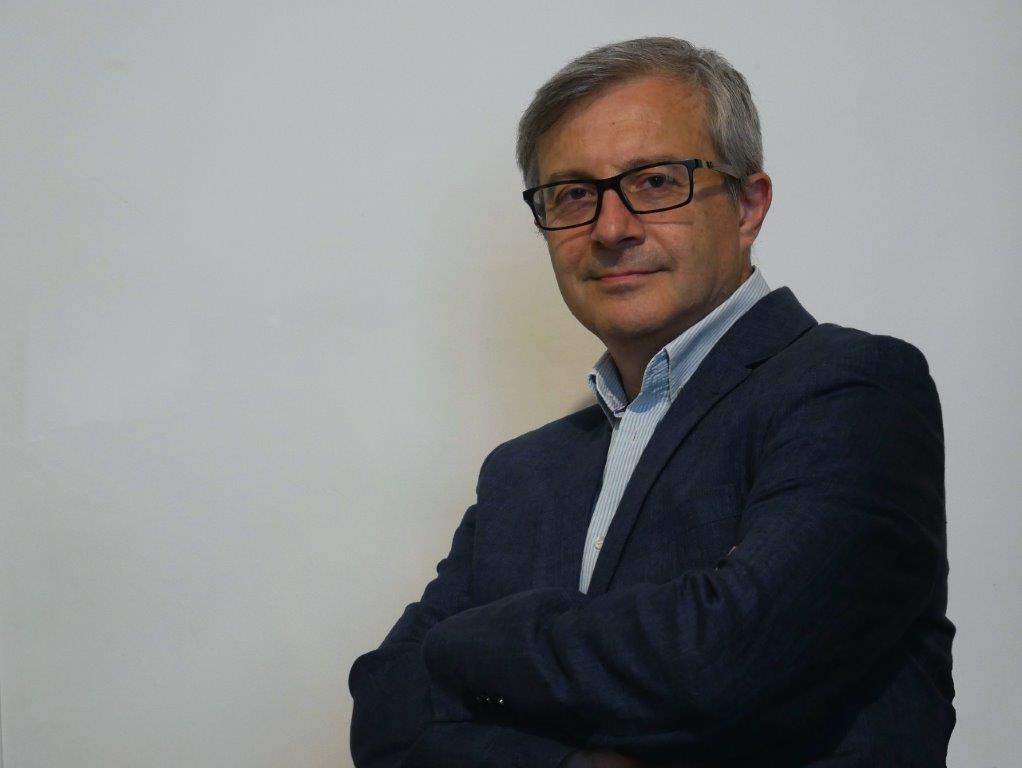
Biography. Marco Lapegna is an associate professor of computer science at the Department of Mathematics and Applications at the University of Naples Federico II (Italy). He earned his PhD in Applied Mathematics and Computer Science from the University of Naples Federico II, Italy. He is involved in numerous national and international projects on implementing methods, algorithms, and software in high-performance parallel and distributed computing systems, focusing on environmental applications. He is an Associate Editor of primary scientific journals and has served as a PC member or workshop organizer at several international conferences in the field of HPC. He is a member of the CINI Laboratory on HPC-KTT since its inception.
Organizers
- Raffaele Montella, Associate Professor, Department of Science and Technologies, University of Naples “Parthenope”, Italy.
- Iacopo Colonnelli, Assistant Professor, Department of Computer Science Department, University of Turin, Italy
- Paula Olaya, Graduate Research Assistant, Department of Electrical Engineering and Computer Science, University of Tennessee, Knoxville, TN-USA
Pubblicity chair, dissemination, and media presence: dr. Federica Izzo
Program Committee
- Barbara Cantalupo (University of Turin, Italy)
- Taina Coleman (California State University Long Beach, CA-USA)
- Diana Di Luccio (University of Naples “Parthenope”, Italy)
- Antonella Galizia (IMATI-CNR, Italy)
- Sandra Gesing (San Diego Supercomputing Center, San Diego, CA-USA)
- José Luis Gonzales Compeán (CINVESTAV-IPN, Mexico City, Mexico)
- Antony Kougkas (Illinois Institute of Technology, IL-USA)
- Marco Lapegna (University of Naples “Federico II”, Italy)
- Jay Lofstead (Sandia National Laboratories, NM-USA)
- Anirban Mandal (RENCI, Chapel Hill, NC-USA)
- Jack Marquez (University fo Tennessee, Knoxville, TN-USA)
- Claudia Misale (IBM, NY-USA)
- Gabriele Morabito (University of Messina, Messina, Italy)
- Dante Sánchez-Gallegos (University Carlos III of Madrid, Spain)
Presentations
- Presentations will be available after papers acceptance.
Gallery (previous edition)
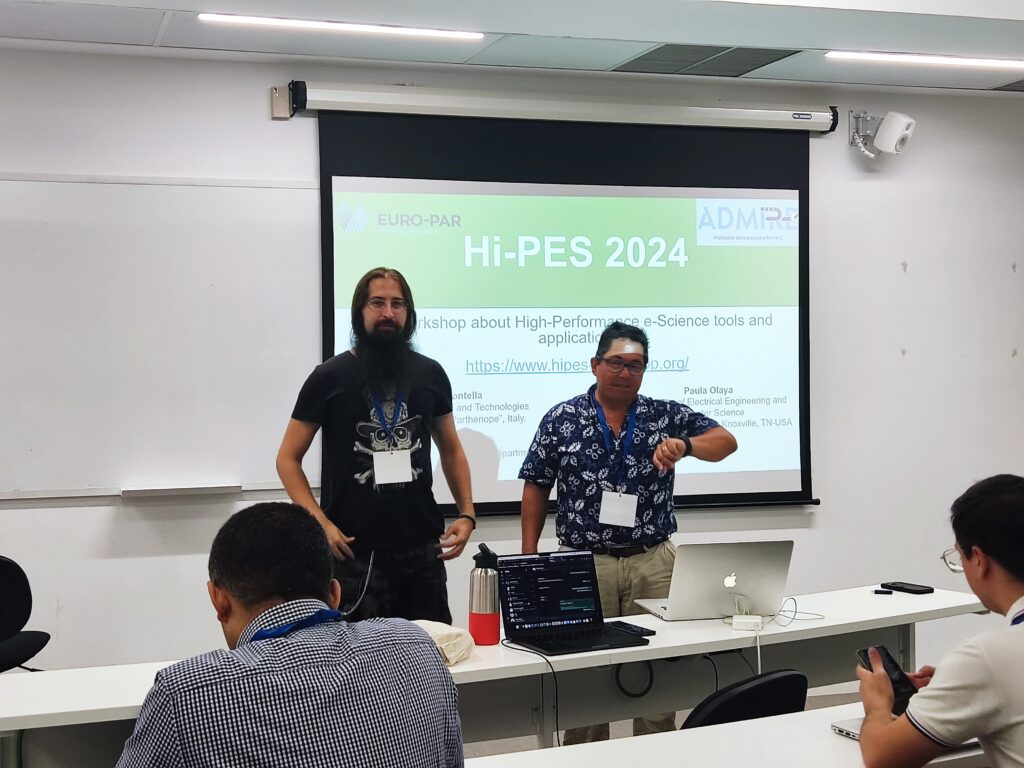
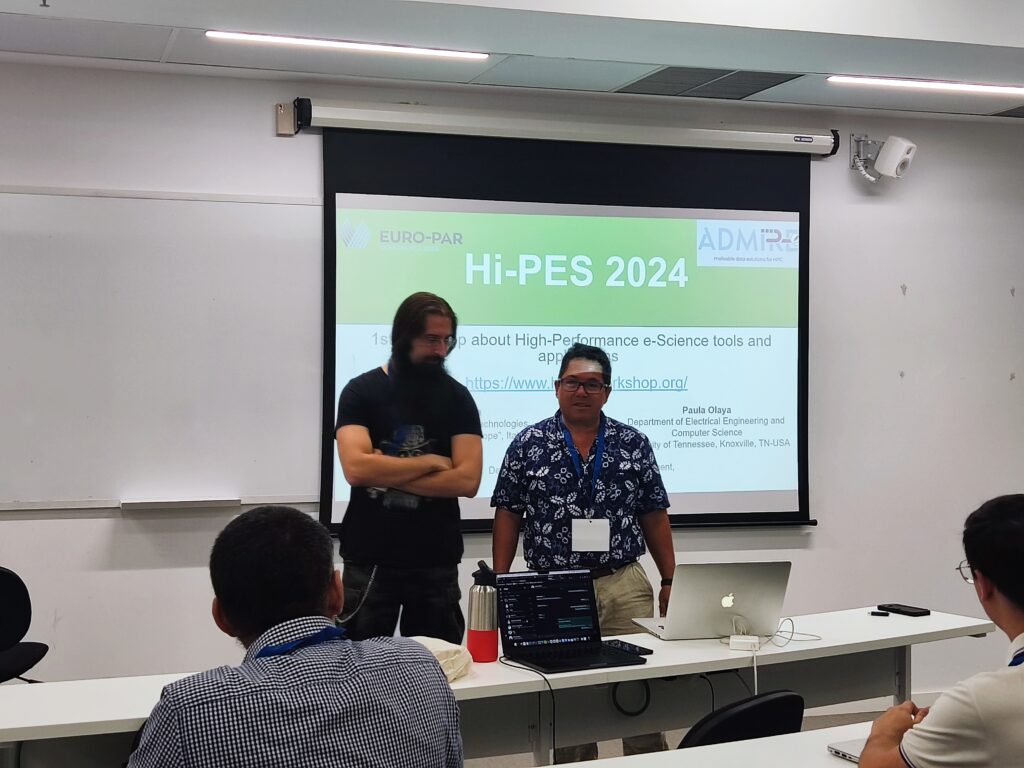
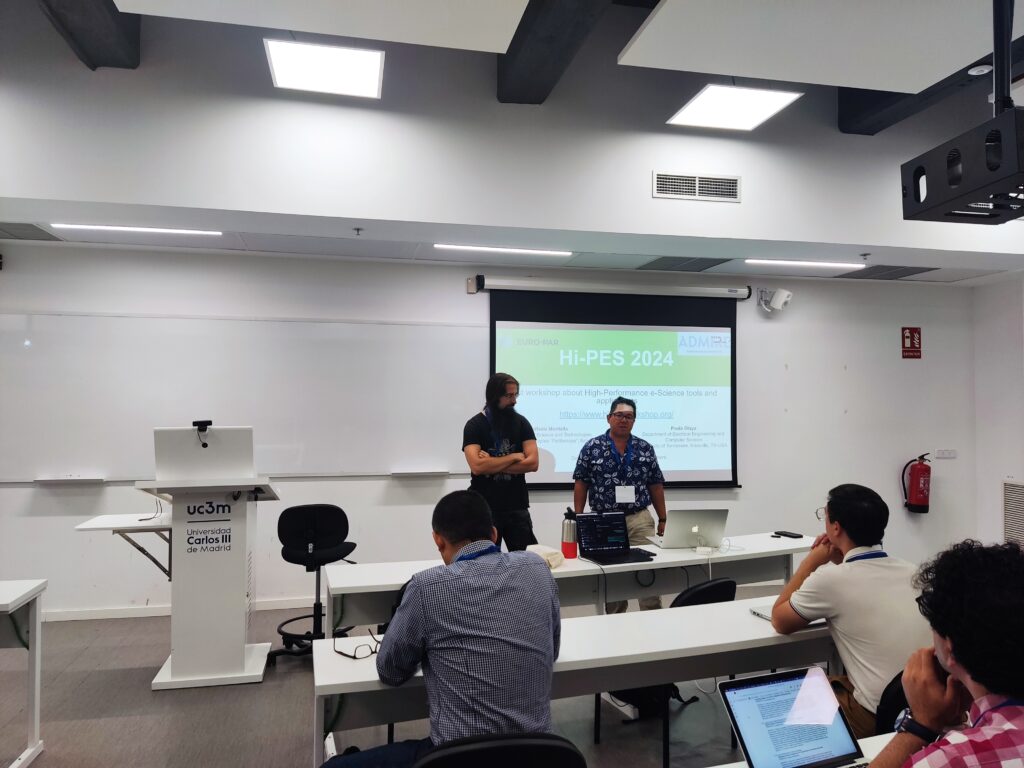
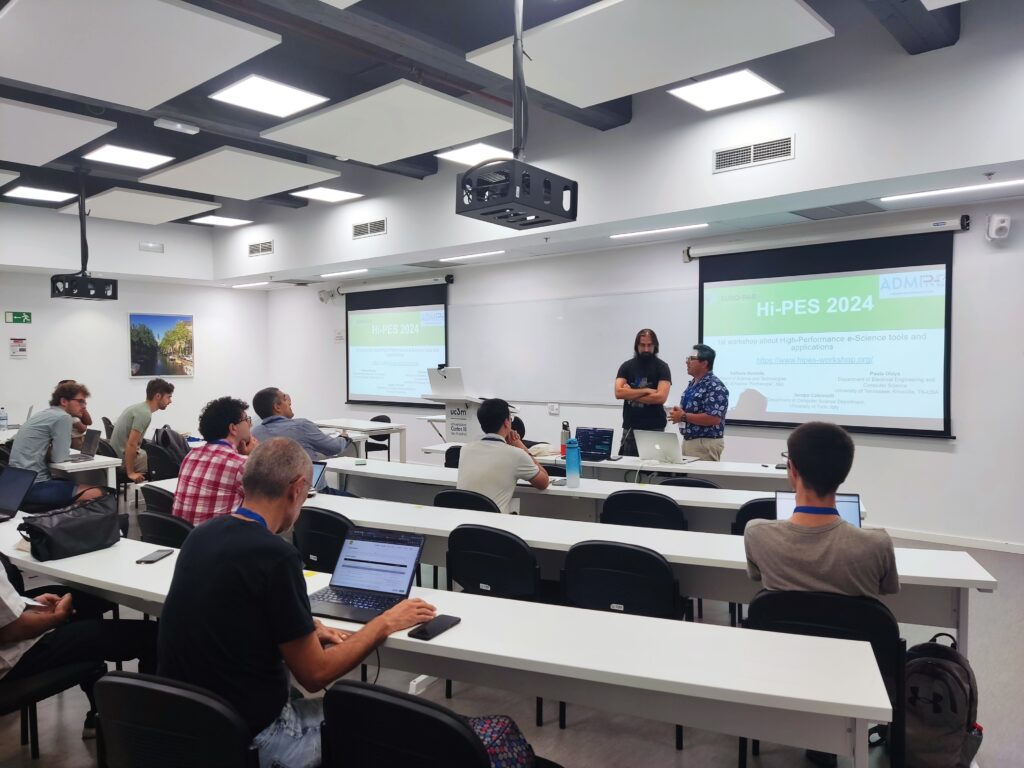
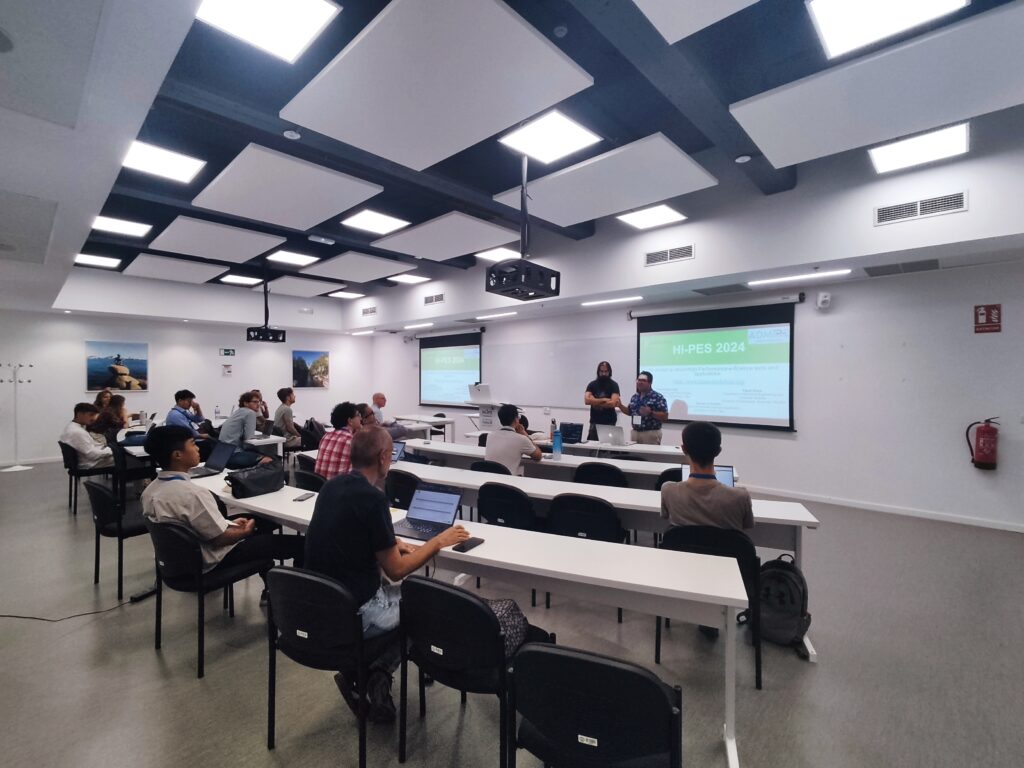
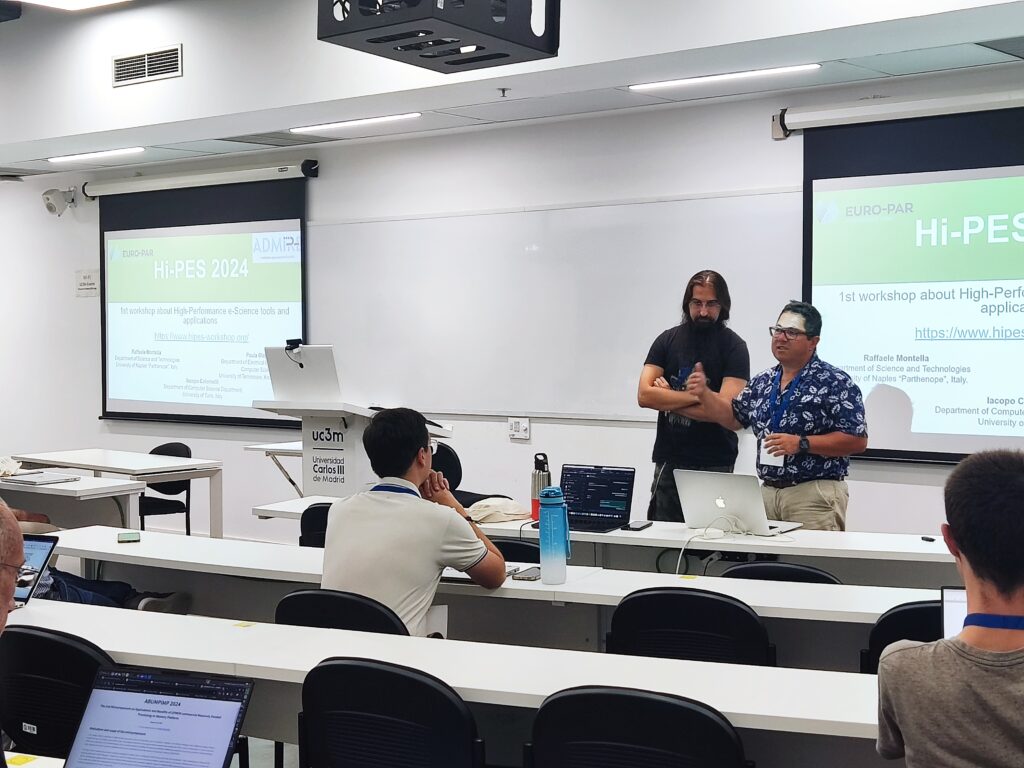
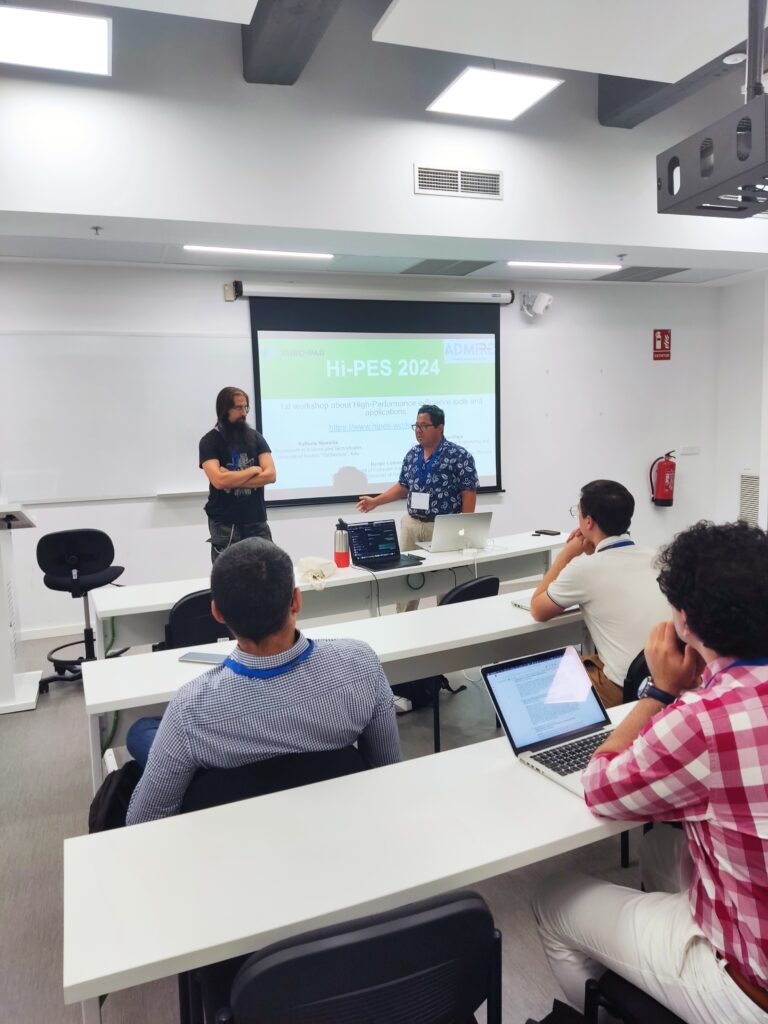
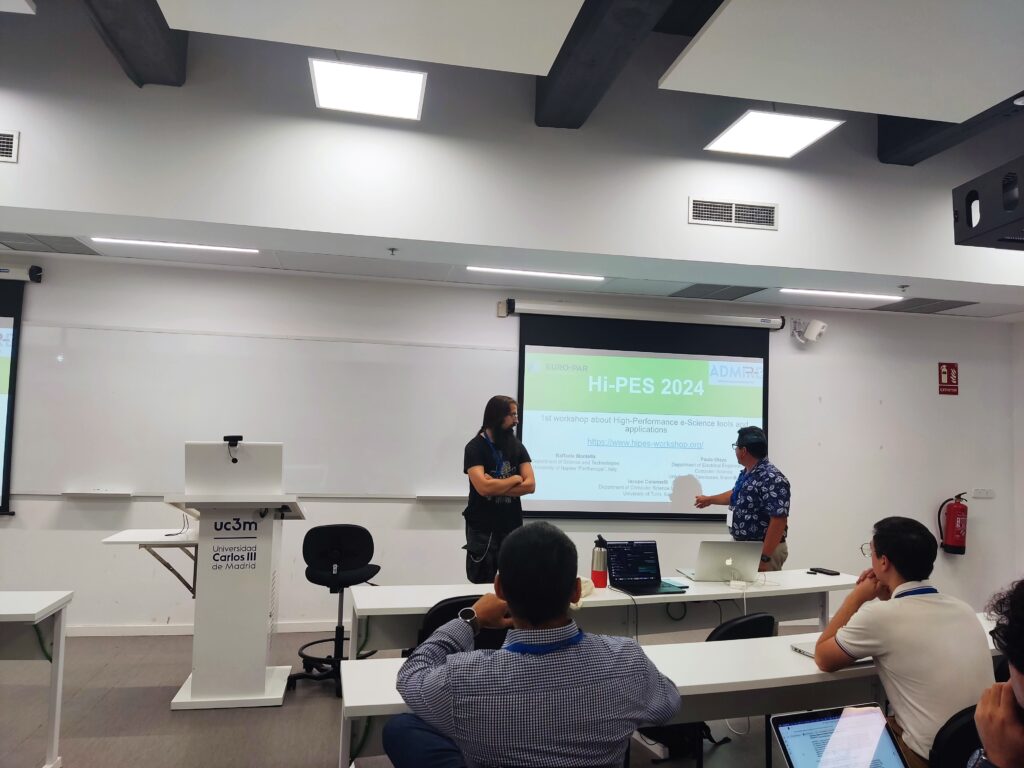
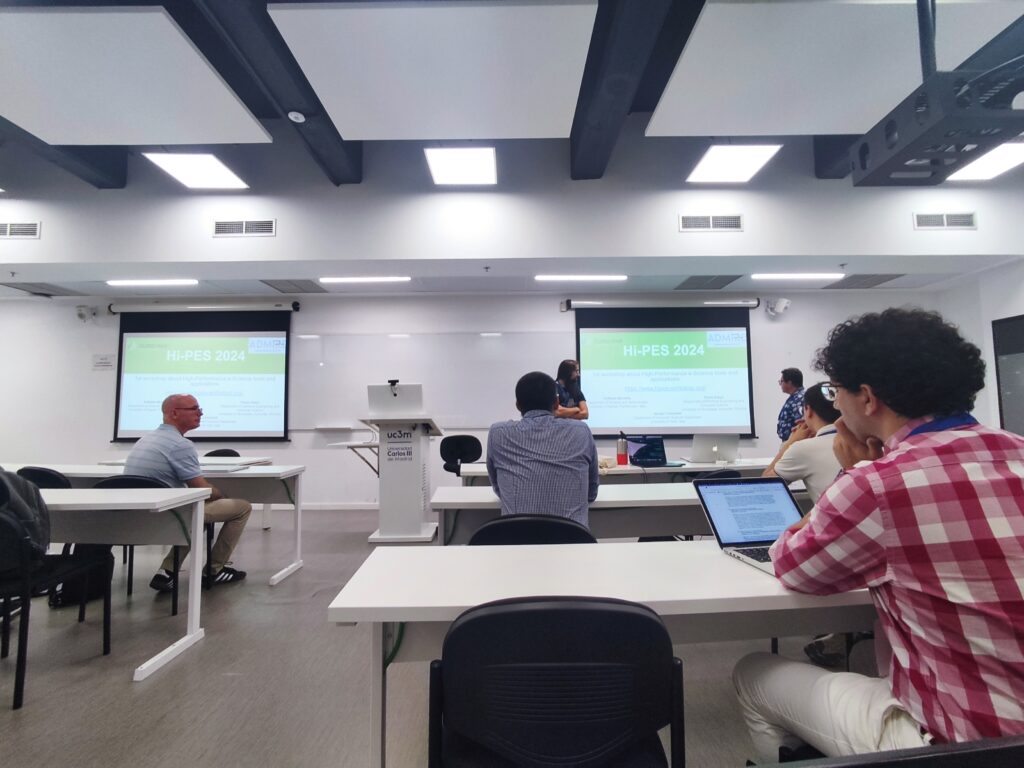
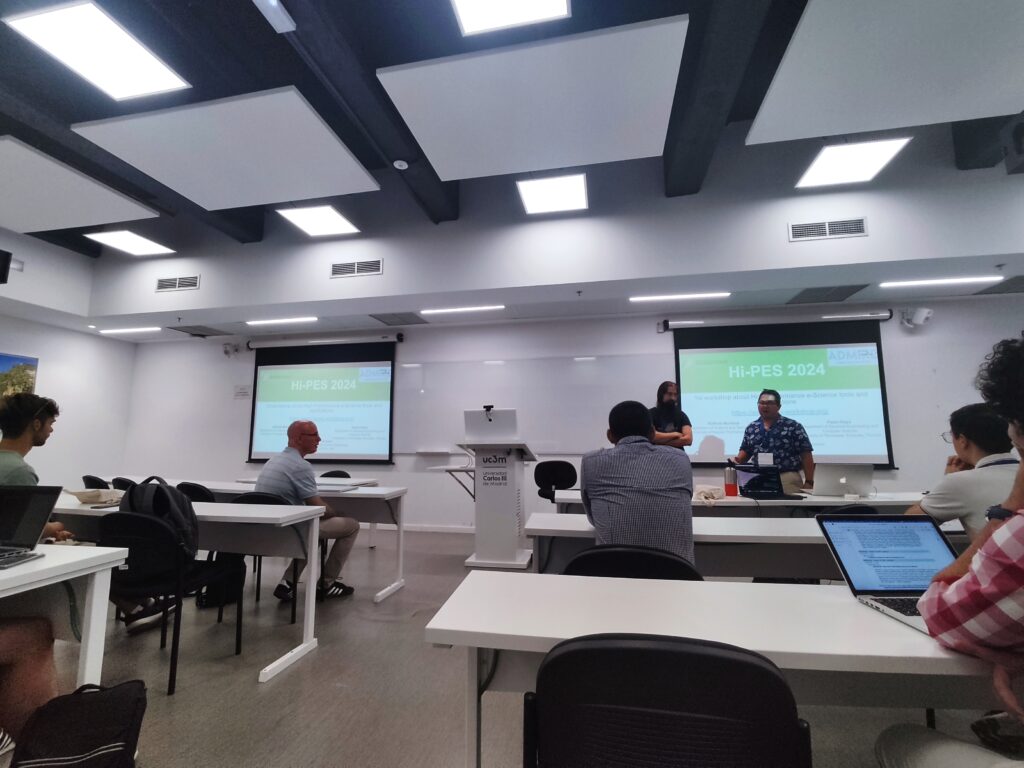
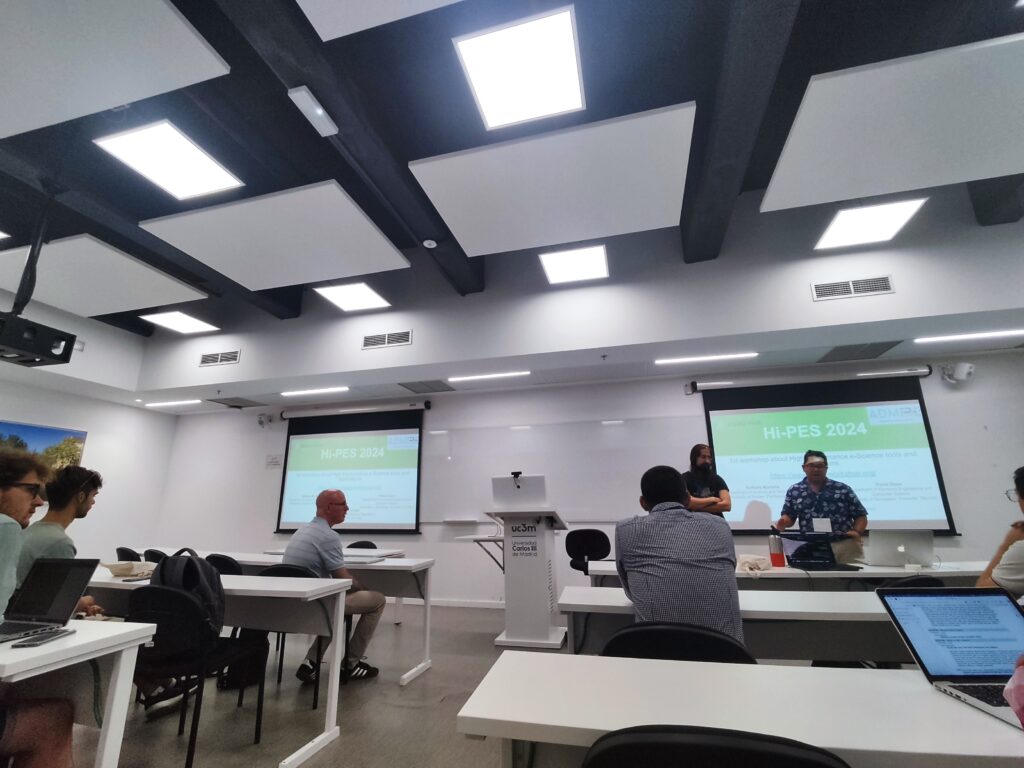
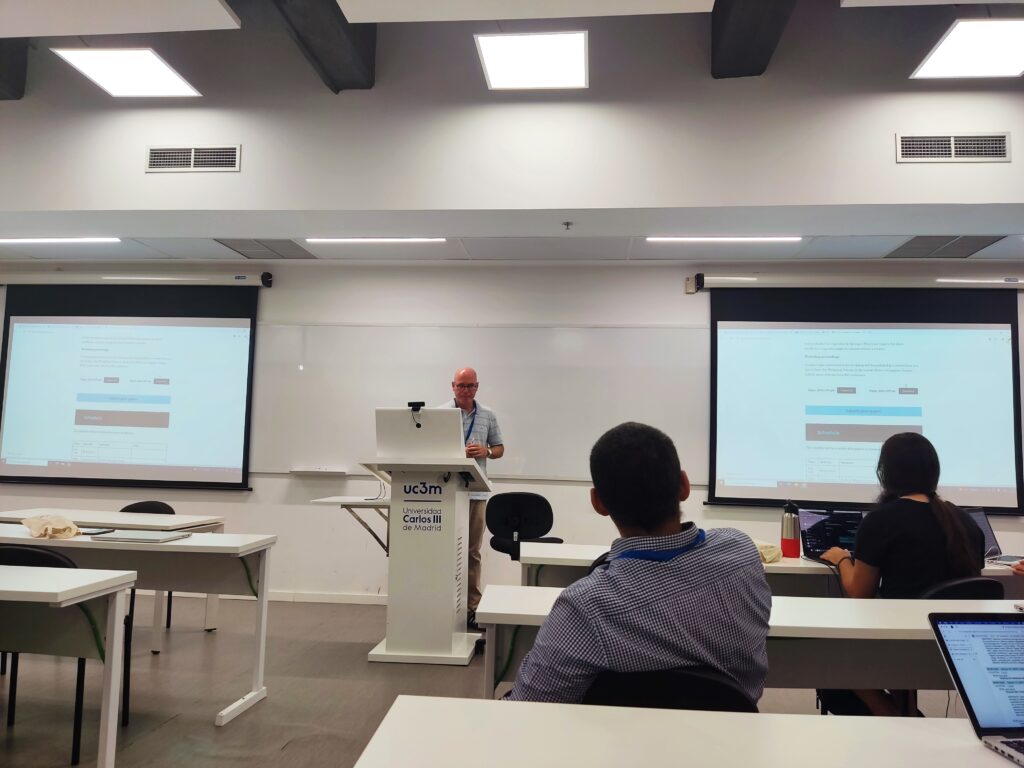
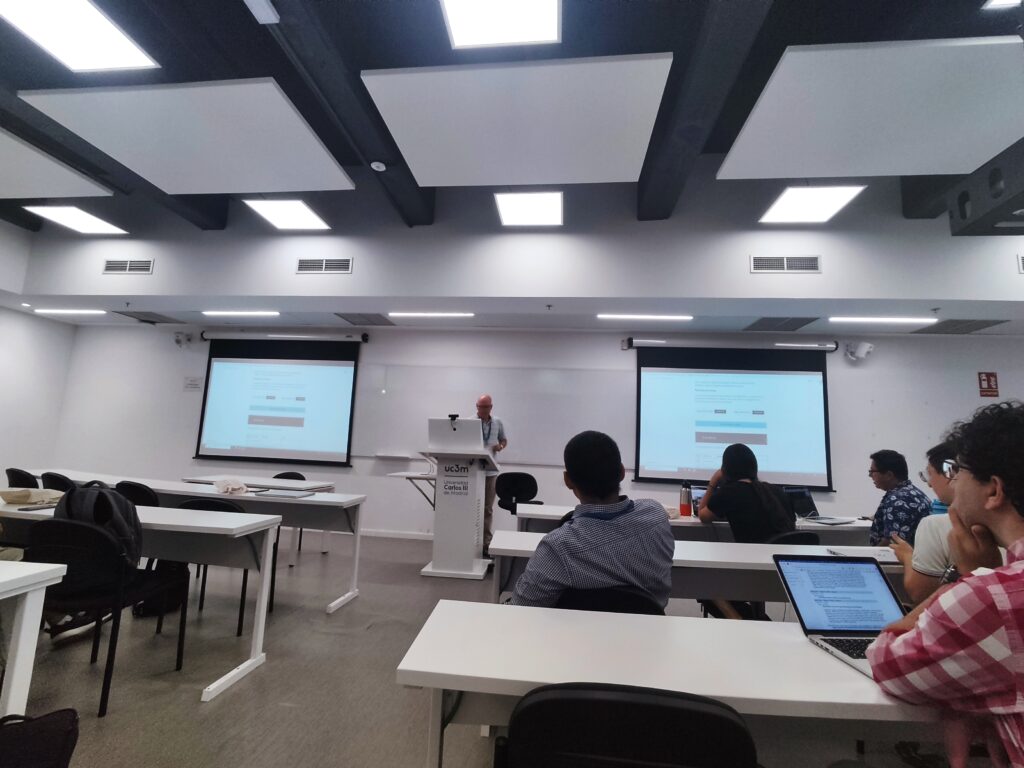
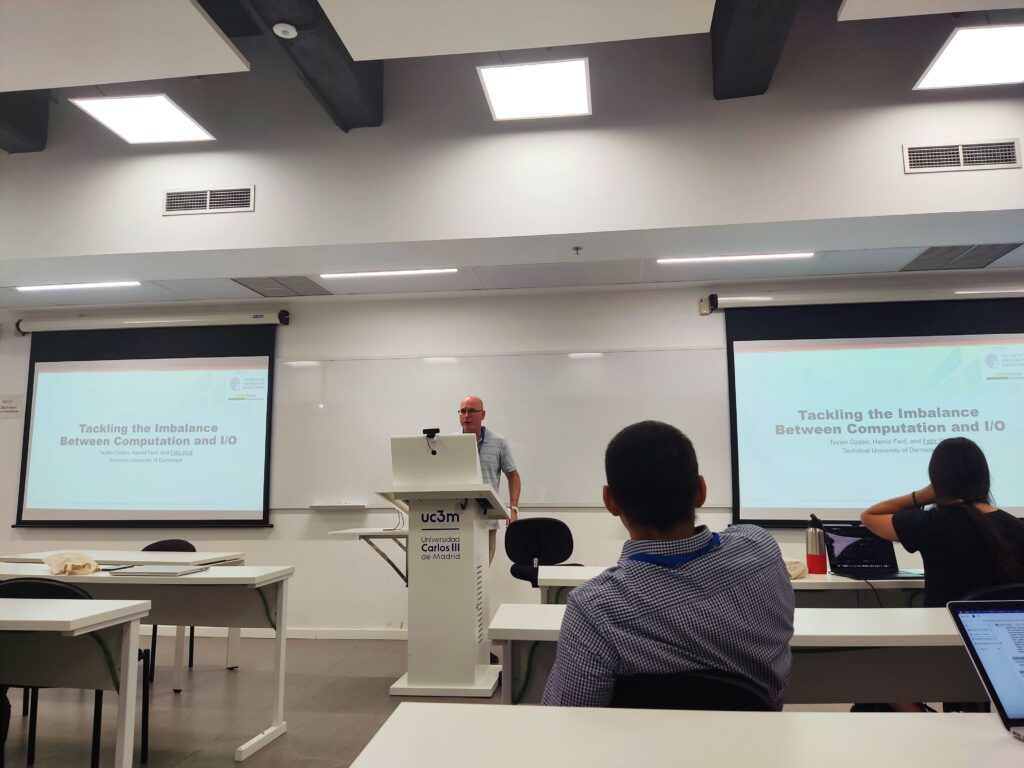
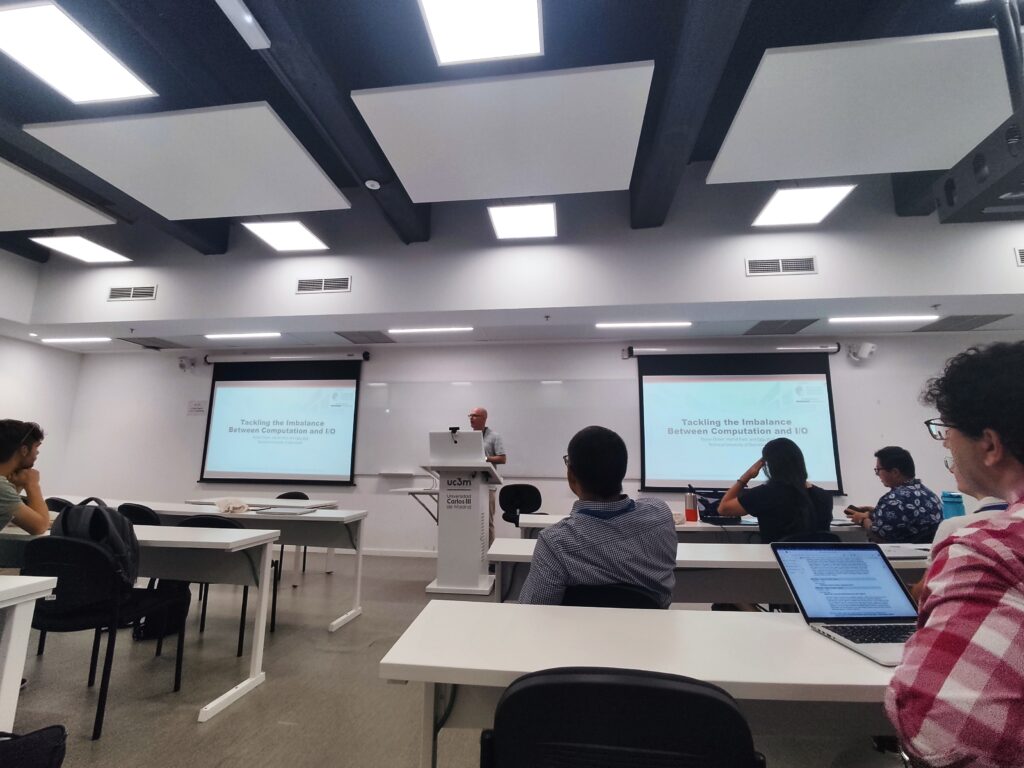
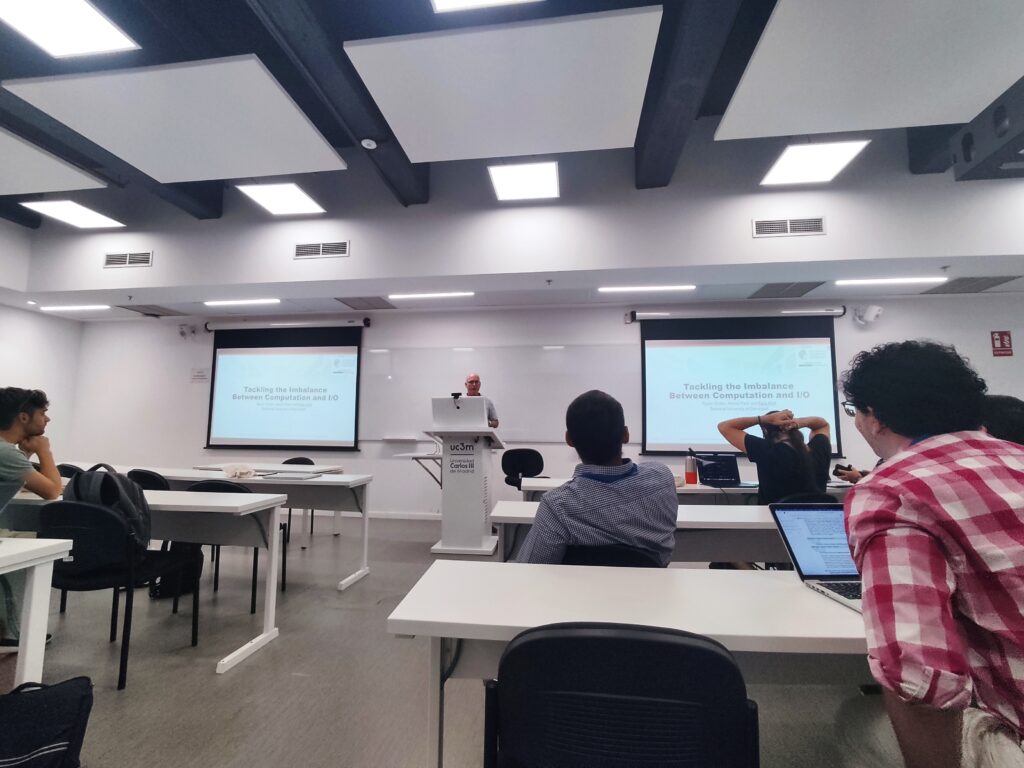
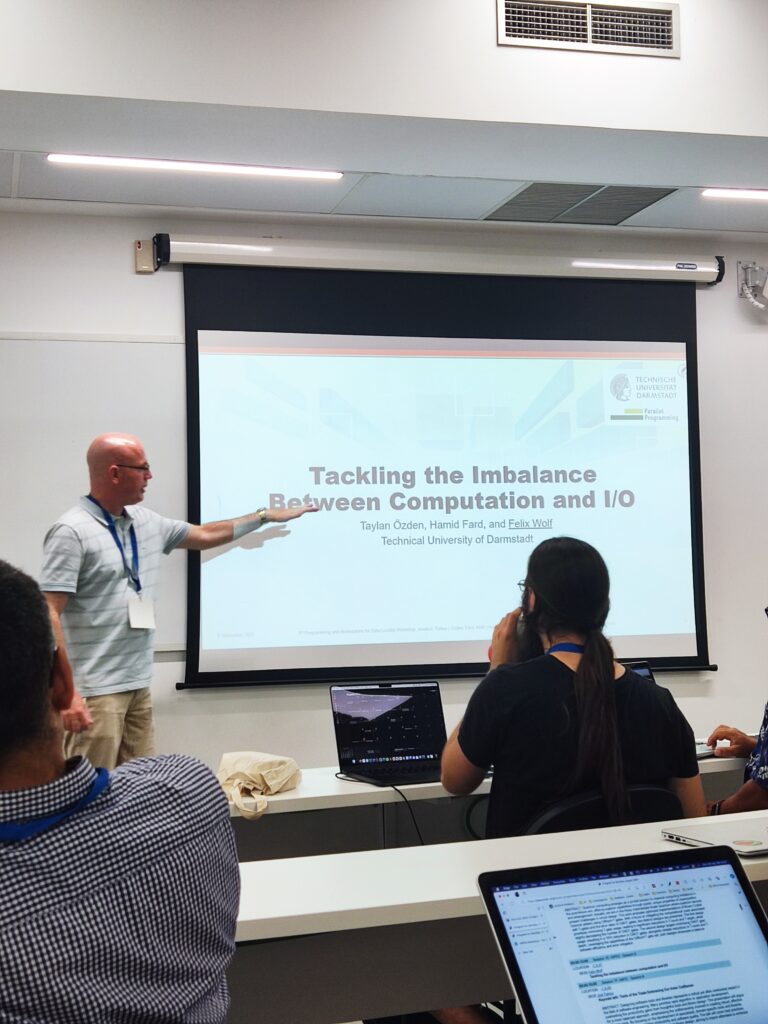
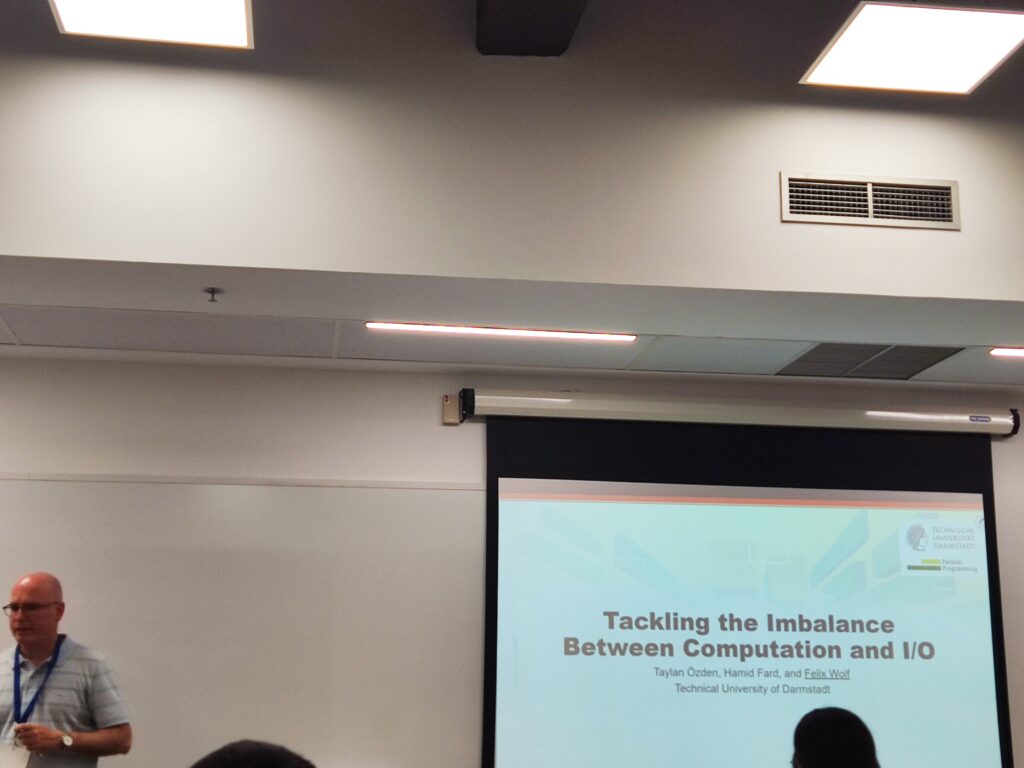
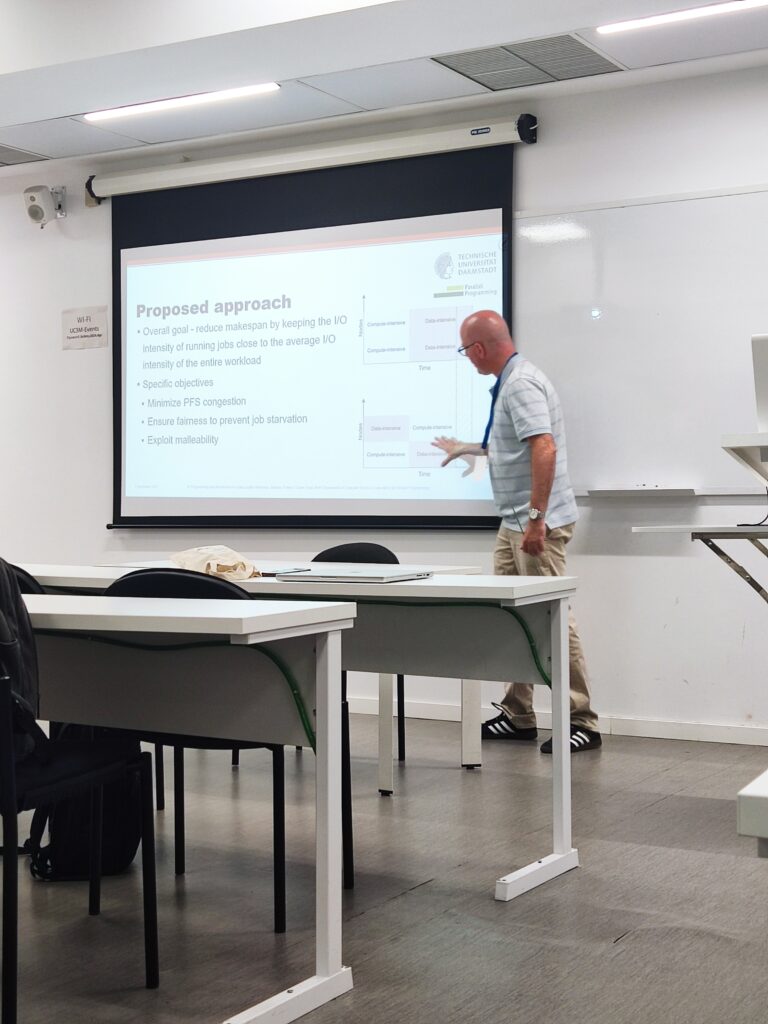
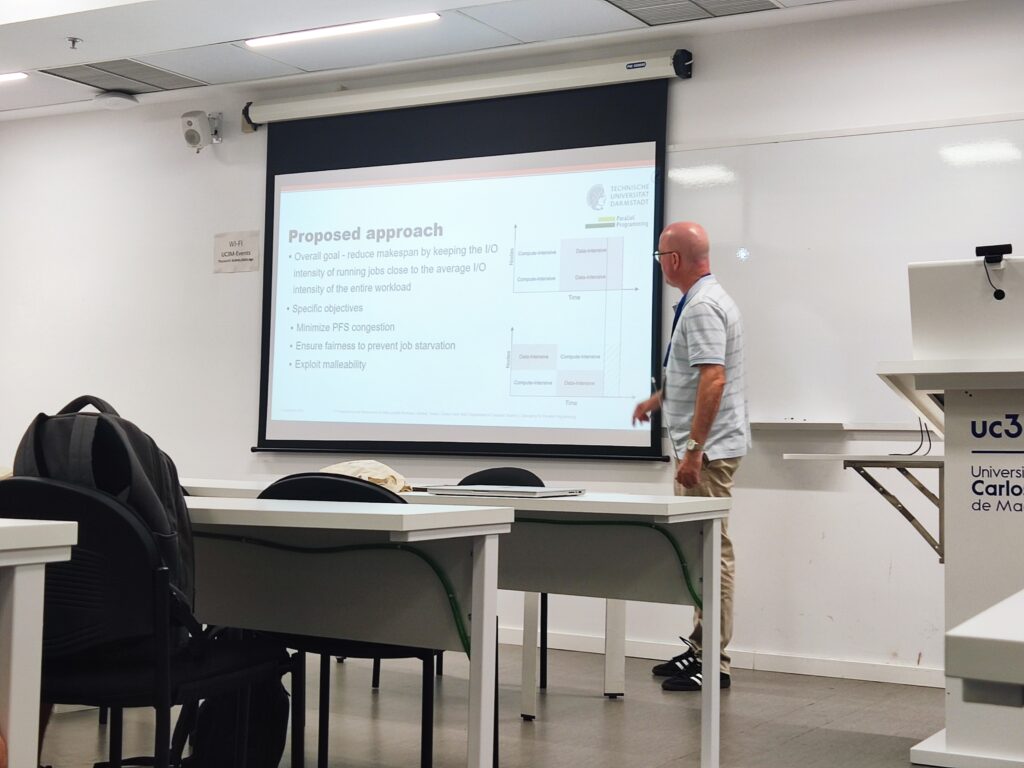
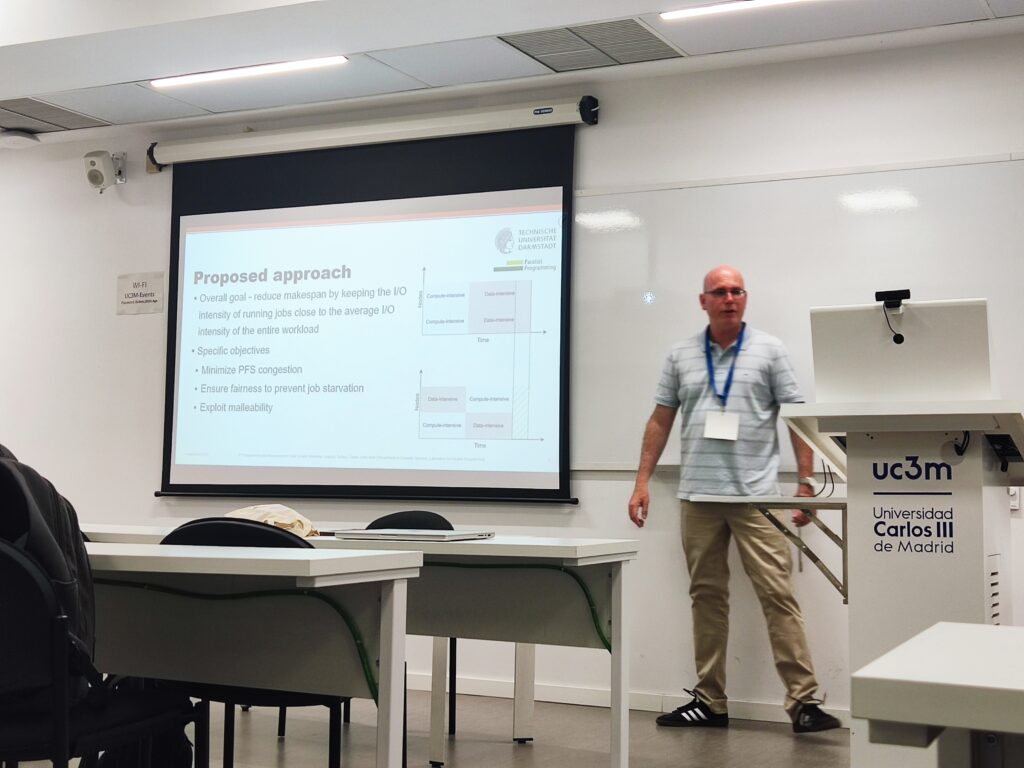
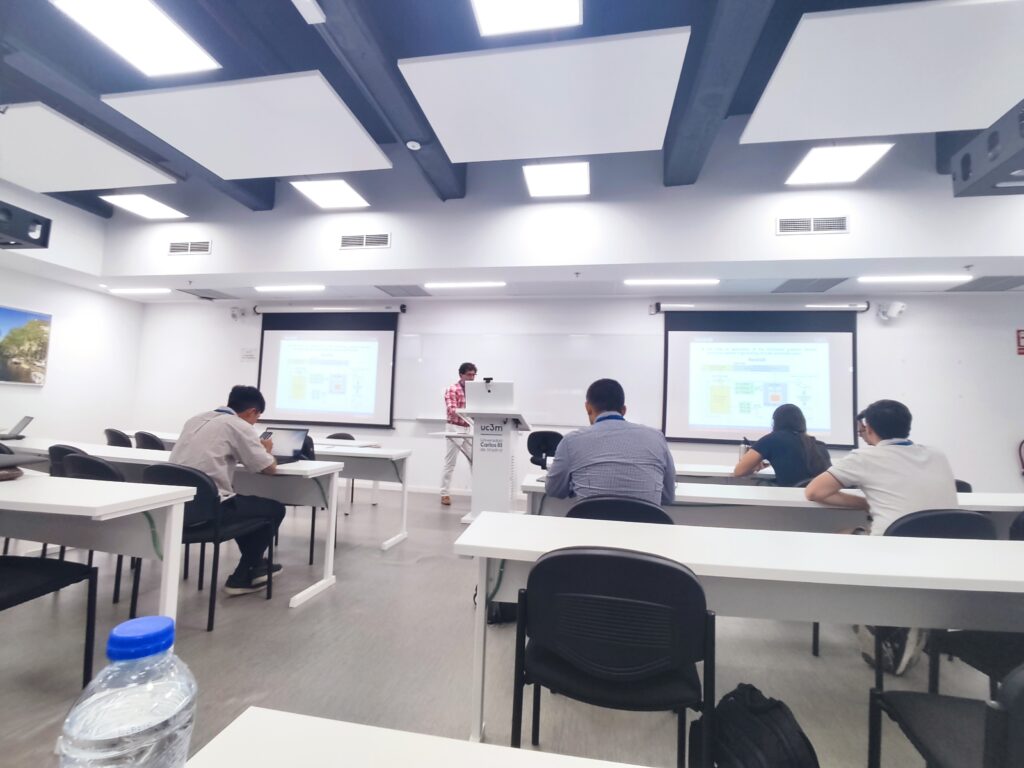
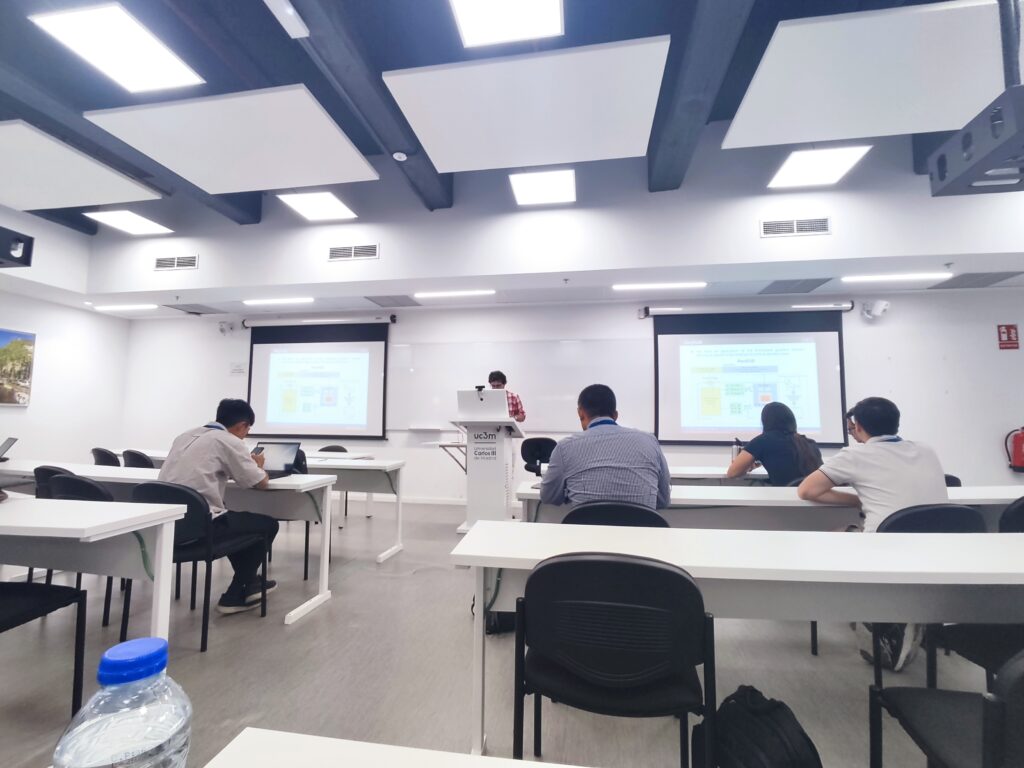
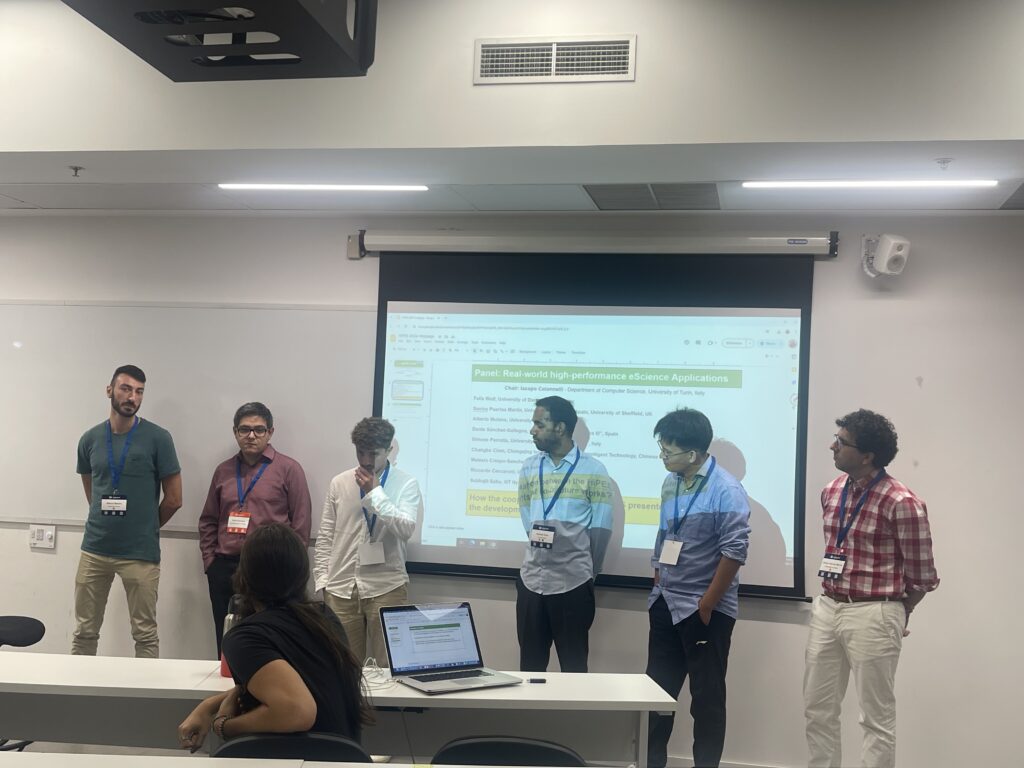
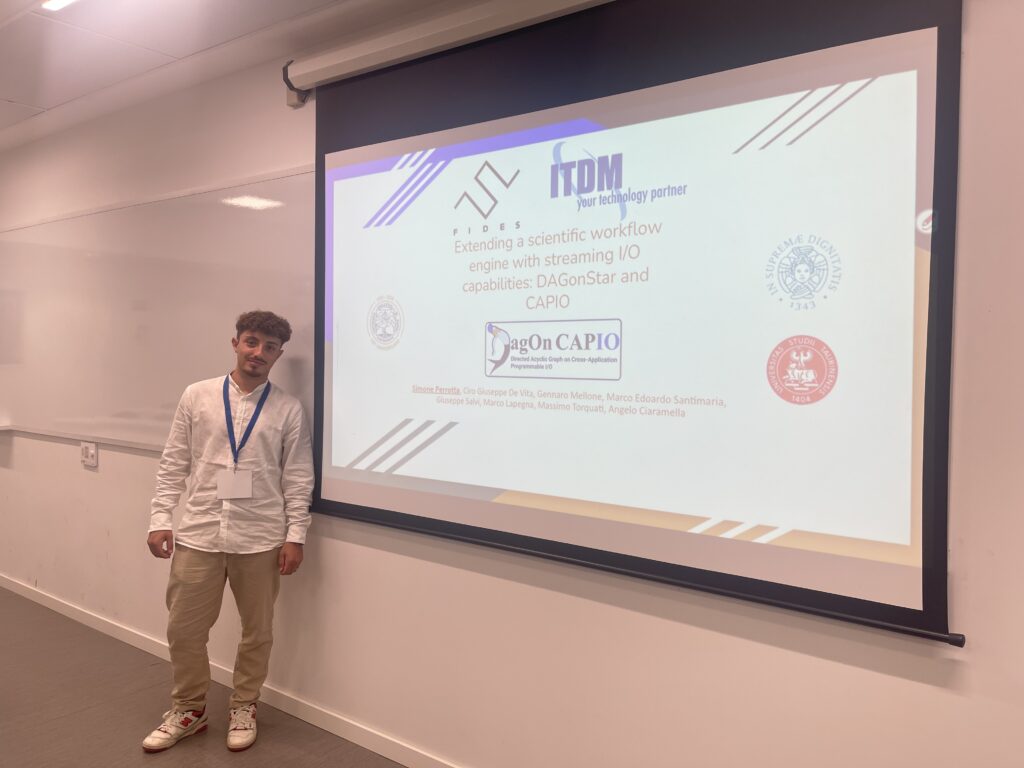
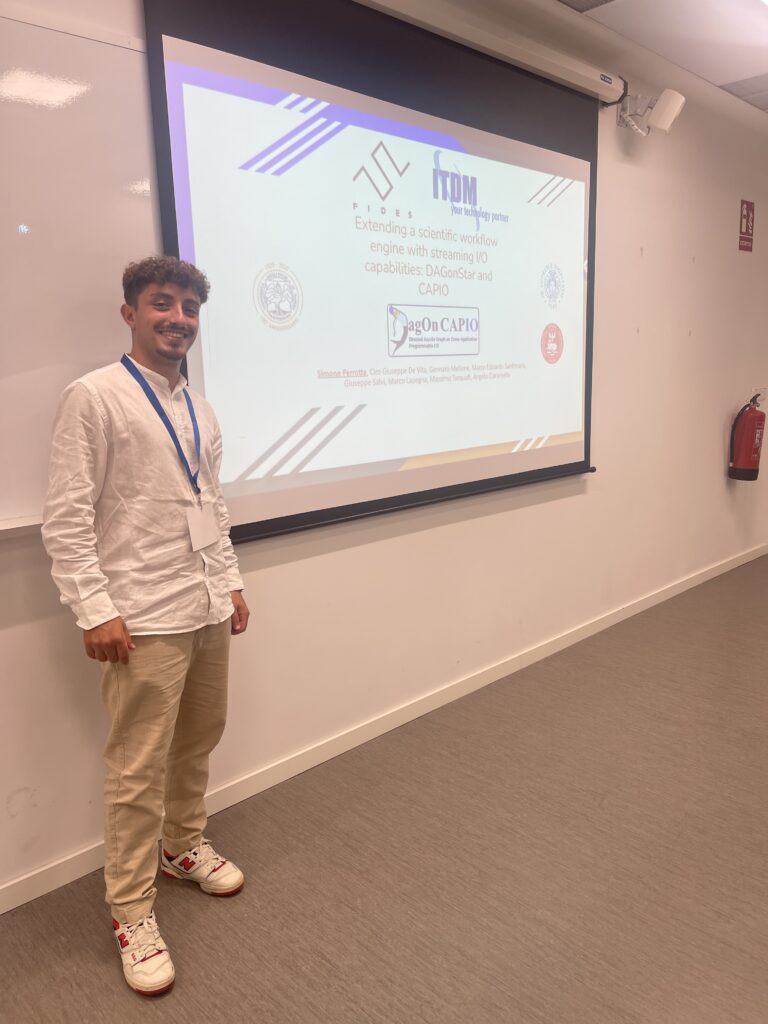
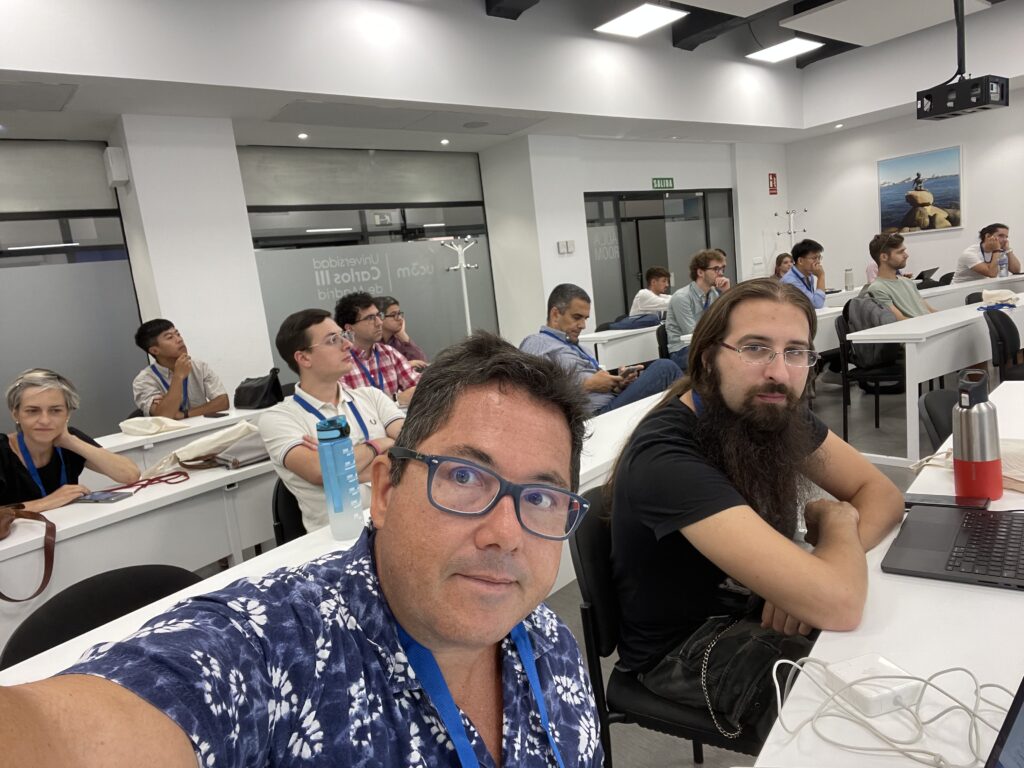
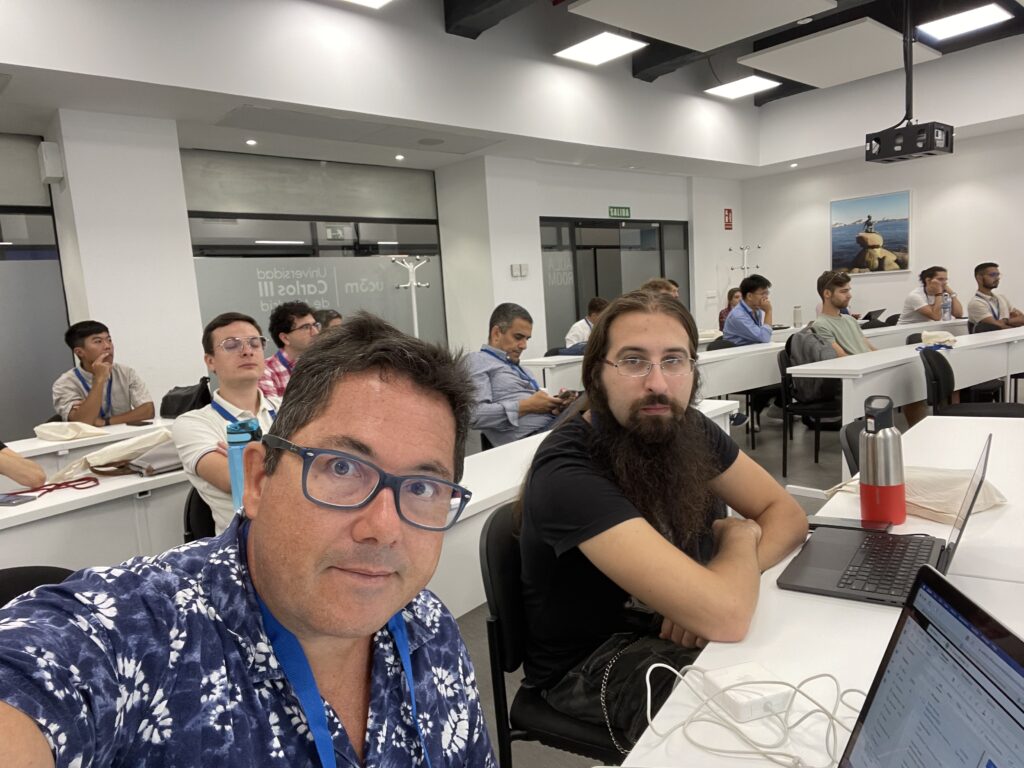
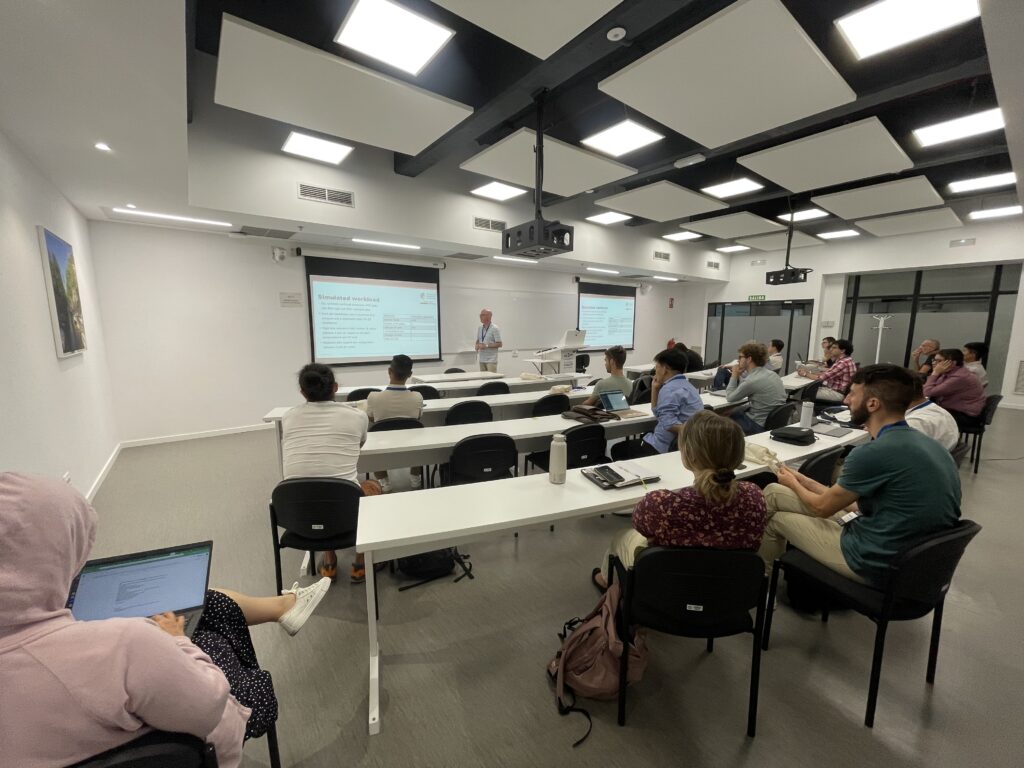
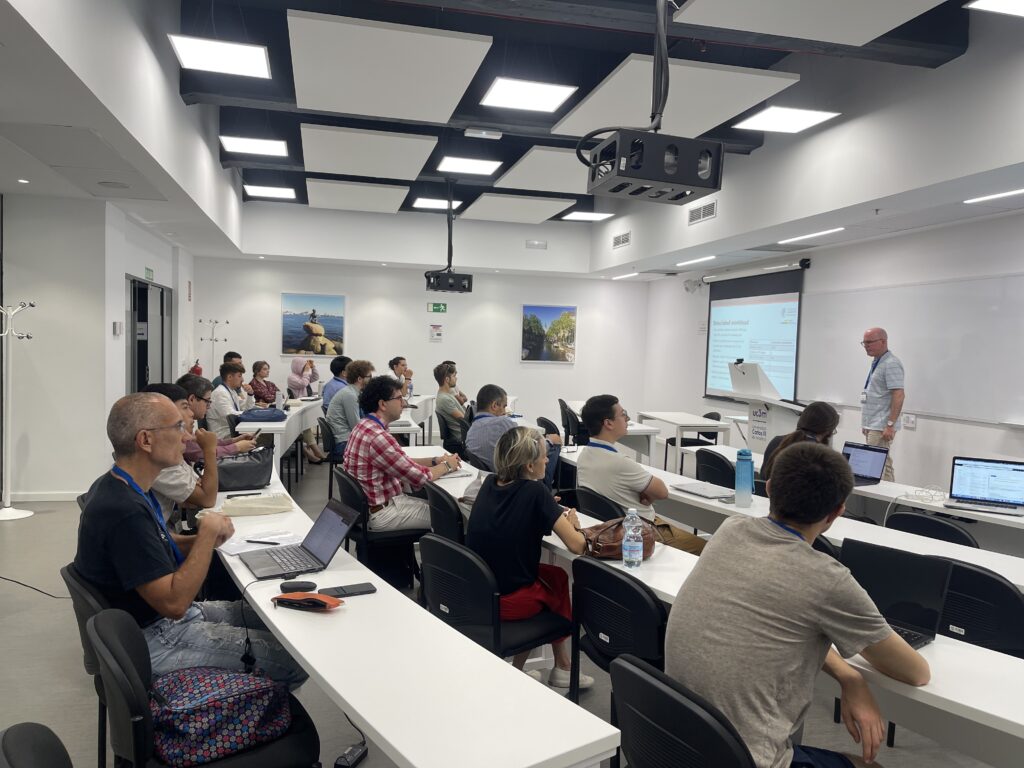
Contact
- Raffaele Montella, raffaele.montella@uniparthenope.it
- Iacopo Colonnelli, iacopo.colonnelli@unito.it
- Paula Olaya, polaya@vols.utk.edu
Previous edition
This workshop is part of the DAGonCAPIO, GLOWPP, and Hi-WeFAI projects PNNR.
